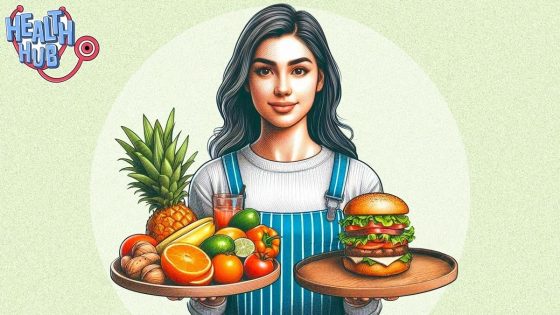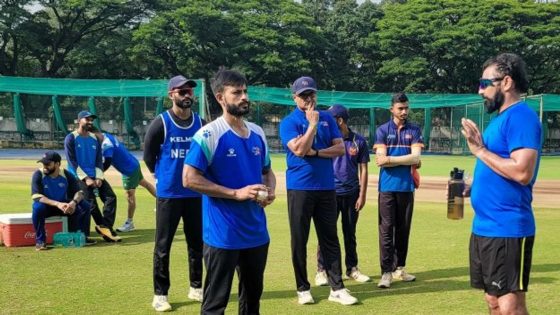Nutrition-related illnesses have been rampantly surging worldwide. Chronic diseases like diabetes, heart disease and even cancers can stem from malnutrition, a highly prevalent health challenge in the world, including in India.
While proper nutrition is the basic right of a human being, billions cannot even afford a healthy diet. Over 2 billion people are micronutrient deficient.
According to the latest Household Consumption Expenditure Survey for 2022 to 2023, there is a continuing decline in the share of food items in the total spending basket of Indians.
A new study by the Lancet reveals that most Indians are deficient in several micronutrients particularly, iron, calcium and folate. Compared to men, more women were deficient in iodine.
These figures highlight a growing trend of people buying more processed and instant foods instead of fresh produce, including fruits and vegetables that could meet their micronutrient needs.
Problems of accessibility and affordability of nutrient-dense food are making India face a “double burden” of malnutrition, where underweight and deficiencies coexist with obesity and diet-related diseases in the same communities and even within households.
A report, released in August, showed that there is an urgent need to make food systems more environmentally sustainable.
India’s apex health research body, the Indian Council of Medical Research (ICMR), released a set of dietary guidelines, written by researchers from the National Institute of Nutrition, highlighting that having a balanced diet prevents malnutrition.
The report stated that a significant proportion of children suffer impaired nutritional status with anemia being a public health crisis.
WHAT ARE MICRONUTRIENTS?
Micronutrients are essential vitamins and minerals that the body needs in small amounts to function properly.
Unlike macronutrients, such as carbohydrates, proteins, and fats, which are required in larger quantities and provide energy, micronutrients don’t supply calories but are crucial for overall health.
Micronutrients are crucial for maintaining overall health and preventing deficiencies that can lead to serious health issues.
They perform a range of functions, including enabling the body to produce enzymes, hormones and other substances needed for normal growth and development.
For example, lack of iron can cause anaemia, leading to fatigue and weakness, while insufficient vitamin D can result in bone disorders. They are also important for energy production, immune function, bone health, and brain function.
According to the World Health Organisation (WHO), deficiencies in iron, vitamin A and iodine are the most common around the world, particularly in children and pregnant women.
Various vitamins like A, B1, B2, B5, C, D, E and K and minerals (such as calcium, iron, potassium, magnesium, manganese, selenium, zinc and copper) are needed for extracting energy, for the absorption of certain macronutrients, for protecting the cells from damage, for transporting oxygen to throughout the body and maintaining electrolyte balance, among others.
MICRONUTRIENT RECOMMENDATIONS
There are approximately 30 vitamins and minerals we need to consume regularly.
Scientists at the Institute of Medicine have established amounts of micronutrients to consume daily, referred to as RDAs (Recommended Dietary Allowances) based on age, gender, and life stage.
It is important to note that these recommended values aim to prevent deficiencies and their related diseases and conditions and are not necessarily optimal for longevity.
WHY ARE INDIANS IRON DEFICIENT?
Iron deficiency means that your body doesn’t have enough iron (micronutrients) to produce the right amount of haemoglobin, the protein in red blood cells that carries oxygen from your lungs to the rest of your body.
Without enough haemoglobin, your organs and tissues may not get the oxygen they need to function properly.
Iron deficiency can cause fatigue, weakness, shortness of breath, pale skin, dizziness, cold hands and feet, headaches and cravings for non-food items like ice, dirt or clay.
If left untreated, iron deficiency can lead to anaemia, a condition where the body doesn’t have enough healthy red blood cells.
This can cause severe fatigue, heart problems, pregnancy complications, and delayed development in children.
Nutritionist Neelanjana Singh told IndiaToday.in that fruit and vegetable intake is declining in India which is leading to several deficiencies.
A lack of iron deficiency could also mean that there is not enough intake of vitamin C, the expert said.
“There is a shift in the purchasing pattern of people who are spending more on non-food and processed items. So micronutrient deficiencies, especially of iron and calcium that come from fruits and vegetables are bound to happen,” said Neelanjana Singh.
Iron deficiency is usually treated with dietary changes and iron supplements. Eating iron-rich foods, such as lean meats, beans, lentils, spinach, and fortified cereals, can help.
In some cases, vitamin C supplements are recommended to improve iron absorption.
WHAT NEXT?
Nutrition-related illnesses are rapidly increasing worldwide, with chronic diseases like diabetes and heart disease often linked to malnutrition.
In India, a significant portion of the population faces micronutrient deficiencies, particularly in iron. The rising consumption of processed foods over fresh produce exacerbates this issue, leading to a “double burden” where undernutrition and obesity coexist.
If we’re looking forward to a strong and healthier future, people must switch to a sustainable, cheaper and highly nutritious balanced diet.
Source Agencies



